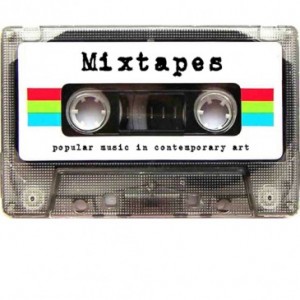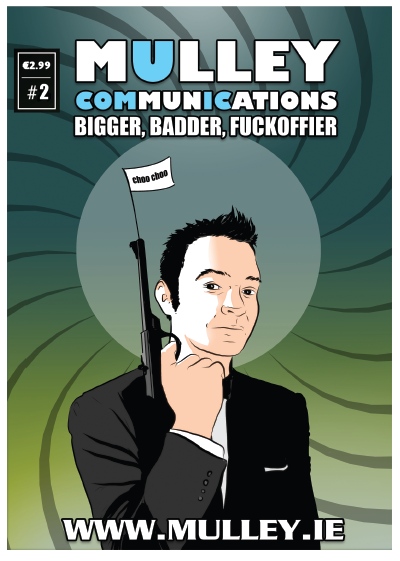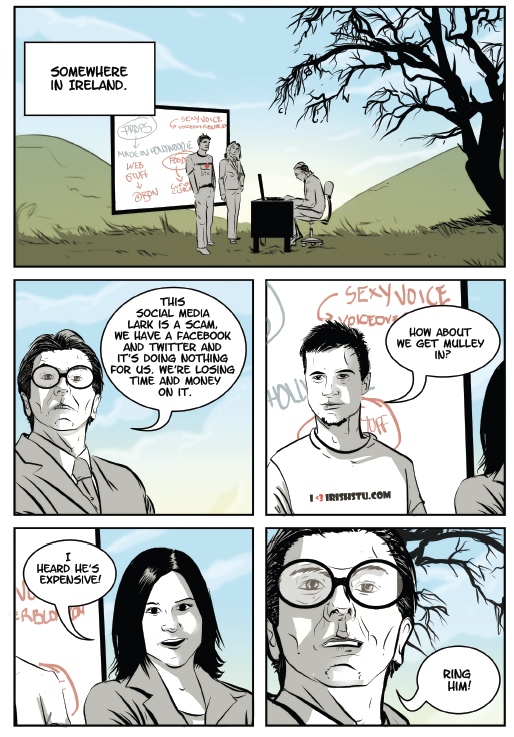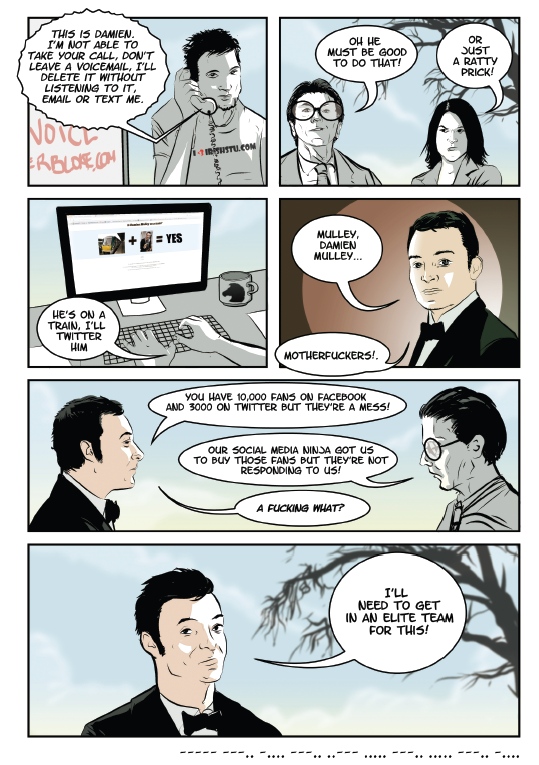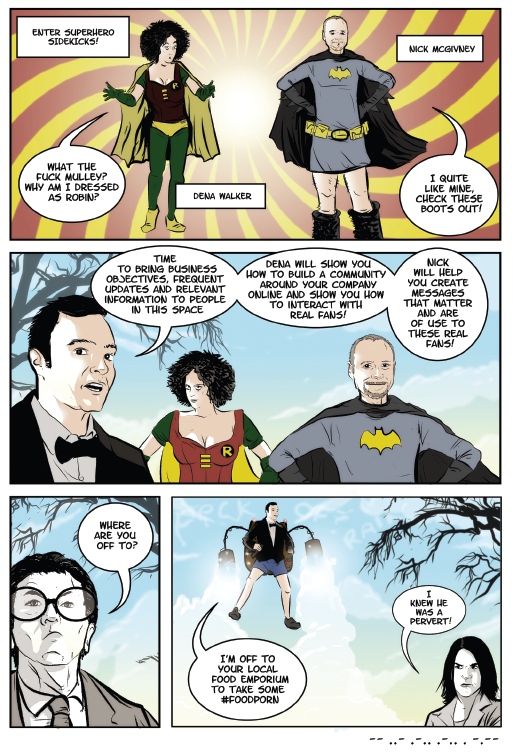This is the second interview with people who have run Fund It campaigns. Ebby Brett is working on his Wires project right now. Previous interview: Philly McMahon.

You’ve used Fund It for Wires, why use the Fund It route? What would you have done previous to using Fund It?
Previously, I’d been involved in the recording of an independently released EP, and a lot of home studio recording, but when it came to starting to decide to record my own record I knew I would need to use a studio. Honestly, I’m pretty crap at recording myself, and I wanted to be sure that if I was going to sell something that it was going to be a decent quality recording. Any of the home recording I had done just wasn’t giving me something I was happy with. Over the years I’ve spent a fair bit of money putting together a decent home studio set up, and in the end I just had to admit that the problem wasn’t the gear, but rather that I just didn’t have that talent for recording myself. I can’t split my brain in two and think like an engineer as I’m trying to also be a musician recording a track.
The costs of recording a full record in the studio are pretty high for a self employed music teacher, so I’d already been looking at sites such as Kickstarter, who were facilitating some very successful crowdfunding campaigns. I knew that roughly half the projects on that site manage to cross their target, so I knew it wasn’t going to be an easy one.
My plan from the outset was to try and cover half the costs myself, and half the costs some other way. I’d already been investigating various crowdfunding options when I heard Fund:it was being launched, which grabbed my interest immediately as it is aimed at projects based in Ireland. I had a few days of studio time behind me and a good sense of how quickly I worked, so I was able to work out a pretty accurate budget.
The appeal of a crowdfunding project to me, was the fact that you weren’t simply just pre-selling the album for a set fee, or going into debt hoping sales will pull you back out, but more that you were giving people a way to feel that they were involved in the creation of the album in some way, as opposed to just being customers or fans. I’ll have to look up the link, but one soundbite that stuck in my head from someone at Kickstarter was about how people were getting more out of feeling involved in the creation of the project than just the outcome itself.
I waited a while before submitting a proposal to Fund:it, and I took the time to look at other projects from all sections of the site. I played things rather cautiously, and reworked my proposal a few times, and ran it by other people before submitting.
Is there much work involved in running a Fund It drive? Setting up seems ok. There seems to be a lot of work in doing frequent updates/reminders about a campaign, did you have a plan of action for this?
Setting up is ok, that’s true, and in many ways, that is the easy part. But you also can’t change the wording of anything after it is submitted, so you really need to be sure that what you’re submitting will read well, look well, and represent your project well. I had some great feedback from some friends, and then after submitting the project, it was sent back to me twice with further suggestions and helpfully pointing out some things I had overlooked. That was brilliant feedback to get. It was straight to the point, completely focused, and spot on.
But, you are right, after then, there is the constant promotion of the project, and trying to get people to hear about it. The folk at Fund:it were very keen to make note when the project was submitted and going to finally be live on the site, that you really had to work to get it across the line. You couldn’t just throw a project up there and expect it to succeed. I had another level of that myself already, as I knew I was an unknown newbie Irish singer-songwriter trying to get money to record an album. It’s not an easy sell.
I had a very rough plan of action for how to promote it: daily status updates on Twitter & Facebook at different times. Blog posts in more depth, cross-posted to LiveJournal. Forums and other online communities I’m already a member of. However, I was constantly looking at how I could be promoting it better, how I could word things better, how to reach specific groups of people and so on. In short, I was trying to make sure everyone I interacted with online over the last decade and a half had an opportunity to find out about the project.
I was posting a link at least once a day on my twitter, personal facebook account, and music page on facebook. I was also keen to vary up what I was posting in these links, alternating linking to the project directly with a link to the list of people who had already pledged to the campaign. I varied what times of day I was posting the links, as everyone has different online reading habits. As it happens, my funders stretch from Alaska to Sydney. I didn’t want to just post a link at lunchtime Irish time every day, for example, and just piss off the same people who check their twitter at lunchtime every day. It was the driving influence in how I updated those sites, and when – I took stock of what annoyed me the most as a reader, and avoided it.
I made missteps early on, and changed my mind about a few things – for example, I took inspiration from thisispopbaby who endeavoured to thank as many funders either on twitter or facebook as possible, which I thought was a wonderful personal touch. But I just didn’t handle it as well as they did, and ended up tagging people in thank you status updates on facebook which felt a bit spammy to me. But I just reworked what I was doing, and turned every update into a thank you of some kind instead. I was keen to not go down the “give me your money” route, or come across as begging in any way. So instead, I made the conscious choice to use any updates to thank people who had already become involved in the project, give an update on the positive amount pledged so far, and stay away from saying things from a negative or needy point of view as much as possible.
On top of those social networking updates, I was also running a few small facebook ad campaigns for the facebook music page, targeting specific groups of people based on music artists similar to my own style of music. I ran a few that were Ireland specific, and a few that were targeting other countries. I kept the budget really low, and was surprised by the reach of some of the campaigns. These were a bigger success than I imagined, and I saw a significant impact over the fortnight that I had them run. It also translated into pledges more than expected. Some facebook friends hadn’t known of my music page, and it was a way for them to find out about it, and that I was trying to record an album. Others were complete strangers who discovered my music, and saw the link to the fund:it campaign and ended up pledging almost right away.
What I think was key at that point was that I’d already done 5 days in the studio, I’d tracked the piano and vocals for about three quarters of the record, and I was able to edit together two lots of clips giving 30secs or so of the work on each track to date. People could hear the music, and hear how it was sounding in the studio, read that I needed funding to help finish off what they were listening to, and make the decision based on something more tangible than a project description or a short video.
From watching some of the other fund:it projects, and even afterwards again now, you can see that people are more likely to back a winning horse, as such. If they see a lot of people getting involved, or that a project is getting close to its target, they’re much more likely to throw a bit of cash at it too.
I also had my website, which cross-posts to my old livejournal account, and to my facebook page too, so I was trying to post updates on the fund:it campaign as well as other posts about the days in the studio prior to the campaign kicking off. (I should probably point out that I wasn’t in studio at all for the duration of the fund:it project, as I couldn’t allow myself to take full days off from promoting it.) I knew I had still a small audience of readers on livejournal, and people I’d interacted with back in the heyday of my posting on that site did get involved with the campaign and did pledge, much to my delight, to be honest. My aim with the blog posts was to give more of an insight into the work in the studio, and a more detailed update on the fund:it campaign.
The final places that I was targeting were forums that I was a member of. I didn’t use Boards.ie that much, as I’ve never really used those forums much, and I figured if I read posts from a member with under 30 posts in 5 years, who was looking for people to go give them money, I’d probably ignore it too. So, I just posted a thread in the musicians promo forum about my music, linking to the site and social links. But, I’ve been a member of a vibrant forum community for over a decade. There’s a thread there devoted to the musicians and musicmakers on the site, so I was updating that with what was going on with me, as well as simply linking in my sig to the fundit campaign. And the support from members on that forum was far more than I had anticipated, with members of that forum actively sharing the fund:it link on their facebook and twitter accounts, multiple times a week. That kind of support is unreal, as I’d see one of them would have already posted the link on facebook by the time I’d logged in to go and post it myself, for example, and that was really heartening.
On top of all that, I contacted a few people aiming to run a competition to randomly reward pledgers to the campaign at certain points. I was thrilled when the Galway Film Fleadh got back in touch and offered me tickets to give away, and wishing me luck with the campaign. That was wonderful – I had to sets of tickets to give away, and I was keen to reward the people who’d gotten involved early in the campaign, so gave away one set after two weeks, and the other set a week later – a whole week before the project was due to finish. I figured that way, even if I didn’t reach my target and the project failed, I was able to say thank you in a small way to some of the people who were pledging money in the very early stages.
I did also email music bloggers, and all of that stuff, but I knew I was an unknown running a similar project to a few much bigger names, and the chances of getting any coverage were going to be slim. I also sent messages directly to some friends who I knew were quite influential in their friend circles, to ask them in person if they wouldn’t mind helping me out with spreading the project around.
What were the main lessons learned from using Fund It, would you have advice for those thinking of using Fund It themselves for the first time?
You will always be surprised by where support comes from.
Reassess everything you’re doing to promote it. Every few days I was looking at what I was already doing, and what else I could do. Getting advice from friends, looking at what other projects were doing, reading up about musicians who were successfully promoting themselves online, and following their twitter feeds to see how they worked, and adapting that for my own personality.
Don’t just expect your fans, friends, family, or followers to just give you money because the fund:it project is running. One of my favourite twitter followers, who I’ve met IRL a few times, and interacted with a lot, didn’t even know about my fund:it campaign until the last few days. You can be promoting the hell out of something, but it can slip some people by, or get lost in the surge of updates on twitter or not be included in the “top news” feed on facebook. Just because you’ve posted it doesn’t mean anyone has read it. I emailed a friend about the project, but he was heading away on holidays, and even after he came back it took him two weeks to get through his email inbox and discover the project a day too late.
Have some other ideas to fall back on if your project doesn’t reach the target. Try to have something that gives a good idea of what the project is. I noticed a bigger interest after I had sample clips available that gave an idea of what the album was going to sound like.
